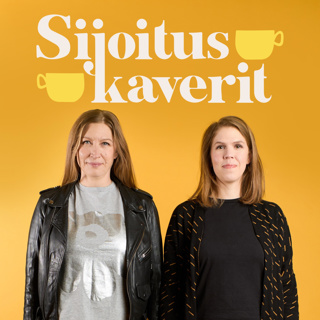
130: How To Treat Your Case Partner Well
Your case practice partner is the most important ally you have as you prepare. The problem is that most people completely squander this advantage. They tend to be unclear about their level of preparation and commitment they are willing to make. Many arrive late to practice sessions, prepare poorly and fail to keep track of their partners performance. When a practice partners breaks contact, you are left in the position of having to transfer all that important insight about yourself to a new practice partner and that is just inefficient even if it could be done. This podcast discusses ways to manage the problem.
24 Huhti 20135min

129: Offering Case Solutions Too Early Hurts You
Candidates sometimes prefer to be cautious and offer a solution earlier rather than waiting to fully flesh out the drivers and key issues in a case. The problem with this approach is that if you offer a solution before identifying the problem, it raises concerns to the interviewer about your thinking processes - how can you offer a solution before identifying the problem? This podcast describes this issue in much more detail.
18 Huhti 20135min

128: Productivity is core operations
In brainstorming the interviewer is looking for your approach to define an objective function, understand the direct drivers of the function, prioritize the drivers and explain how to manipulate them. There is only one definition for productivity and that is formally used in all studies. Productivity is the total value of outputs over the total cost to deliver those outputs. Other definitions are derivations which assess narrow areas only. A candidate will struggle to understand operations cases unless they understand the concept of productivity.
12 Huhti 20134min

127: Merging BCG and McKinsey Approaches
Merging the BCG and McKinsey approach, elegantly. This is a simple discussion on how to merge both approaches so you do not need to worry about learning different techniques. One caveat, as explained in latter podcasts is to assume there is just a simple BCG and simple McKinsey style. It is dangerous to make this assumption. About 50% to 60% of McKinsey cases cannot be solved with any framework at all. Most McKinsey cases require an hypotheses upfront, but not all, and they almost all interviewer led. It is crucial to understand the different ways a case can be done and listen carefully to the interviewer to figure out which is best for you.
6 Huhti 20135min

126: Career Rotation vs. Progression
Candidates always want to show improvement on their resumes in the months leading up to their applications. For those working in industry or rival consulting firms, showing leadership and career development is crucial. This podcast explains that career rotation, a lateral move at the same pay grade, is rarely a good idea unless it takes you to a part of the business where you can show leadership in solving a major problem. Career progression, a promotion to a new pay grade, always looks good on a resume because it demonstrates you are mastering your functional domain. It is better to stay in a role and achieve results than rotating for a better title.
31 Maalis 20134min

125: Estimation = Brainstorming = Structures
We always teach clients estimation technique first, followed by brainstorming technique and finally full case technique. There is a simple reason for this, which is explained in this podcast. Estimations tend to be, but not always, a brainstorm with very few or just one branch. A brainstorm is therefore an estimation equation with multiple branches. A full case structure is a very large brainstorm with mini-brainstorms at each new branch. We want candidates to see this evolution so they can understand how crucial brainstorming is to the entire case interview approach.
25 Maalis 20135min

124: Leadership versus Teamwork Answers
If you are thinking through responses to leadership and teamwork questions, the starting point should be knowing the differences between both. At its core, to McKinsey especially, leadership is about influencing a group people to undertake and complete an initiative of importance. Yet, a better definition is that as the leader you tend to be the primary beneficiary of what is happening since you get the credit. As a great team member, you do much of the work but you do not get the great. Ensure your teamwork and leadership stories cover this crucial distinction.
19 Maalis 20133min

123: Changing Practice Styles Manages Uncertainty
Over the course of the case interview training program, it becomes very important for us to change our coaching style. First, candidates become used to solving cases in just this one style and we need to ensure they can adapt to any style. Second, candidates become adept at reading the "tell" in the coach/mentor so they know when they, the candidate, is making a mistake etc. By changing our coaching style and introducing mentors, we can easily avoid this problem and ensure candidates are becoming stronger at cases versus merely stronger at doing cases with the one coach. Ensure you are also practicing with partners who have different styles.
13 Maalis 20134min





















